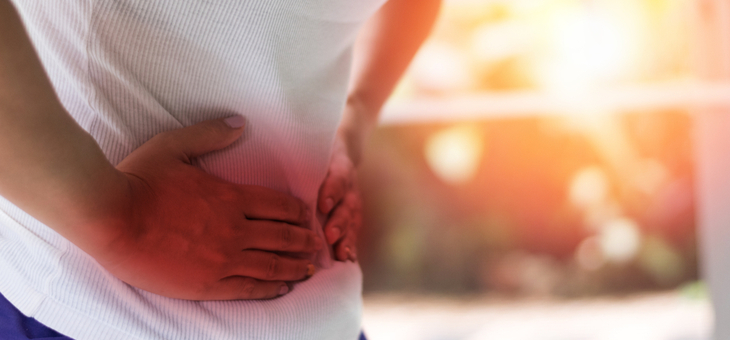Diverticulosis is a condition that allows diverticula, small pouches that develop in the muscle of the wall of the intestine and colon, to form. Diverticulitis refers to inflammation or infection of these abnormal pouches and is considered a serious medical condition. These conditions together are known as diverticular disease.
Diverticulosis is extremely common, affecting more than half of those over the age of 70. It is most common among older people who eat meat and follow a ‘Western’ diet.
Diverticulitis may cause abscesses, haemorrhage and a perforated bowel. A rupture in the bowel wall may cause contents to leak into the abdominal cavity. This may be indicated by fever, chills and pain. Peritonitis, the infection of the membrane that lines the abdominal cavity and organs, may be caused by perforation and can be life-threatening. Both conditions are medical emergencies and require immediate medical assistance.
While people with diverticulosis often show no symptoms, the presence of diverticula may be indicated by:
- constipation or diarrhoea
- pain or bloating in the abdomen
- flatulence
- anaemia
- blood in faeces.
Diverticulitis symptoms include:
- fever
- abdominal bloating
- sharp pain in the abdomen
- nausea and vomiting.
Diagnosing diverticular disease can be difficult, because of the limited symptoms, but medical tests, including a physical examination, a colonoscopy, CT scan, barium enema and stool or blood tests, can confirm the condition.
While there is no known way to prevent diverticular disease, increasing your consumption of fibrous vegetables, exercising regularly and staying hydrated all help to manage the condition.
If you enjoy our content, don’t keep it to yourself. Share our free eNews with your friends and encourage them to sign up.
Related articles:
What is misophonia?
Five deadliest diseases for women
Is your thyroid out of whack?
Disclaimer: This article contains general information about health issues and is not advice. For health advice, consult your medical practitioner.

